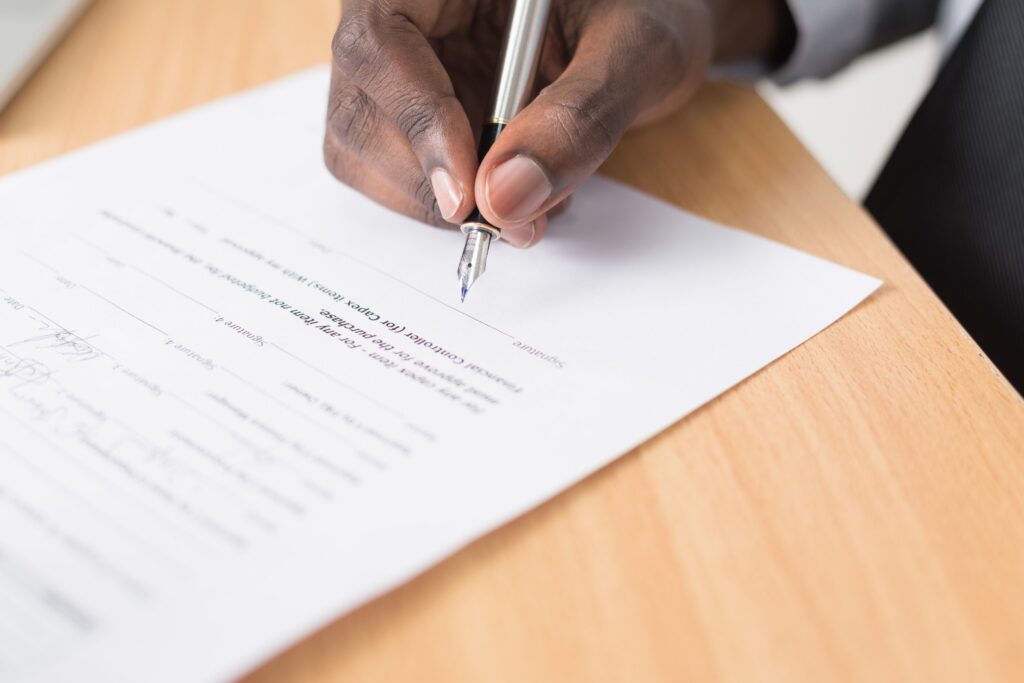If you are approaching the estate planning process in New York for the first time, you probably have a number of questions. One of the most critical aspects of any estate plan is a Last Will and Testament. Here are some common questions (and answers) about this important document:
- Where Should I Keep My Will?
Most experts agree that it is best to keep your will in a very safe place. One of the most popular options is a safety deposit box at your local bank. While some lawyers may agree to keep hold of your will, this is not always possible. You might also wish to keep the original copy of your will in a safe within your home.
- Will My Family Argue Over My Will?
Yes, there is always the possibility that your Last Will and Testament will spark a few quarrels among your family members. One of the best ways to avoid this eventuality is to take extra care when crafting your will. A qualified estate planning attorney can identify potential areas of conflict as they help you draft the will.
- Who Needs to Witness My Will?
A valid will in New York requires the signatures of two witnesses. A notary is not required according to New York law. Note that your witnesses do not necessarily need to read your will. They simply need to sign an affirmation that saw you sign the will. Finally, you cannot mention these witnesses in the rest of your will (meaning that they cannot be beneficiaries).
- When Do I Identify My Executor?
Generally speaking, estate planners identify and choose their executors while drafting their will. For those who do not know, executors are responsible for carrying out your will. They make sure that all of the wishes you have laid out in your will are respected. You may change your chosen executor over time if you wish. Who should you choose as your executor? This is a common question that many estate planners in New York ask. Here are some attributes that a good executor might have:
- General financial literacy
- A well-defined sense of morals and ethics
- A personal and emotional commitment to your family
- General trustworthiness
- Unbiased toward any particular member of your family
- Lives somewhat closeby
- Experienced with record-keeping
With all that said, executors do not really require any special skills to carry out their roles. The most important attribute is arguably trustworthiness, and this may make a wide range of individuals suitable for the task. Some estate planners choose their lawyers as executors, although this is not required.
- Can I Change My Will?
Yes, you can change your will over time. However, it is best to do so alongside a qualified, experienced attorney. Technically speaking, you cannot alter an existing will. In order to make adjustments, you will need to revoke your previous will and start from scratch. Fortunately, this is a relatively easy process – as long as you make it absolutely clear that your previous will is no longer valid.
- Does a Will Only Deal With Money?
No, a will often deals with many other issues. For example, a will may lay out who should become the legal guardian of your children if you pass away. A will might also deal with certain medical issues, such as your willingness (or lack thereof) to undergo certain procedures should you become incapacitated.
- What Happens if I Remove Staples From a Will?
New York courts have issued a very clear warning to never remove the staples from your will when making copies. According to the courts, this may constitute a modification that could invalidate the document. If you do remove the staples from your will, you will need to sign an affidavit specifying why you decided to do so. Estate planners often mistakenly remove staples when making copies of their wills.
- Can Anyone Read My Will?
Your will is confidential until you pass away. At that point, the will goes on public record – meaning that virtually anyone has the ability to view it. You have the freedom to show your will to anyone you like while you’re still alive. If you work with a lawyer to write your will, they will obviously have the ability to see it. It is generally a good idea to keep your will private, as this may minimize family disputes.
- How Do I Know Whether I am of “Sound Body and Mind?”
It is important that you are of “sound mind” when you write your will. This means that you are not mentally incapacitated in any way – either due to some form of ailment or the effects of alcohol/drugs. If someone argues that you were not of sound mind when you wrote your will, they may have the ability to invalidate the entire document.
- Can My Lawyer Write My Will for Me?
Only you can specify what you would like to include in your will. Your lawyer can certainly offer advice and guidance, but they cannot write your will for you. If you simply write out your will on a napkin without any witnesses, there is a chance that your wishes may be respected by probate courts in New York. However, this strategy is highly unreliable – and estate planning attorneys offer numerous benefits:
- They can listen carefully to your wishes and make sure they are carried out
- They can help you craft your will in such a way that it minimizes tax issues
- They can help you and your family maintain privacy as you craft your will
- They can foresee potential issues and challenges that might arise with your will
- They can help you determine how to handle complex assets in your estate
Reach Out to a New York Estate Planning Attorney Today
If you have been searching for an experienced estate planning attorney in New York, look no further than The Village Law Firm. While internet research can provide basic information about the general process of writing a will, it cannot replace targeted, personalized advice from a lawyer. Book your consultation today to get started on a solid estate plan.





